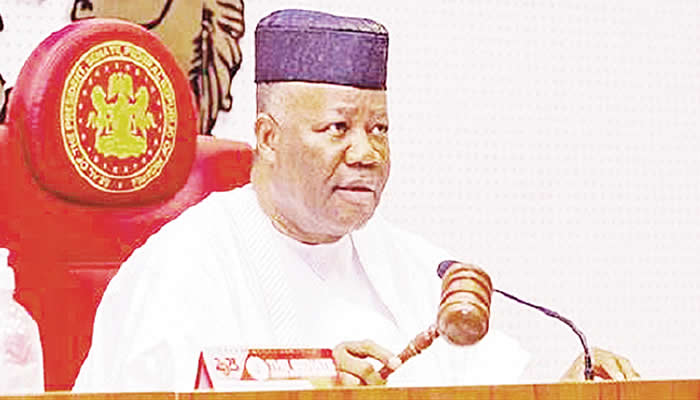Senate President Godswill Akpabio has expressed optimism about Nigeria’s potential to become a leading exporter of value-added raw materials, emphasizing the transformative impact of the Raw Materials Research and Development Council Amendment Bill. This bill mandates a minimum of 30% value addition to raw materials before export, a move Akpabio believes will revolutionize Nigeria’s economic landscape. He highlighted the current unfortunate scenario where Nigeria, despite being a major cocoa producer, imports cocoa products at exorbitant prices, a situation he attributes to the lack of local processing and value addition. The Senate President’s vision, fueled by the proposed legislation, is to reverse this trend, ensuring that Nigeria benefits from the full economic potential of its abundant natural resources.
Akpabio’s vision extends beyond mere export of processed goods; it encompasses a holistic approach to resource utilization. He lamented the current state of the solid minerals sector, describing it as “pathetic” due to the prevailing practice of exporting raw materials without any value addition. This practice not only deprives Nigeria of significant revenue but also perpetuates a cycle of poverty and underdevelopment. The Senate President stressed the importance of recognizing the inherent value in Nigeria’s raw materials and leveraging this value for economic growth and job creation. He envisions a future where Nigerian industries, fueled by local raw materials, flourish, creating a vibrant and diversified economy.
The Senate President’s emphasis on value addition is not simply about increasing revenue; it’s about building a sustainable and resilient economy. He argues that processing raw materials locally will not only generate greater economic value but also stimulate job creation across various sectors. He envisions a scenario where factories and processing plants spring up across the country, providing employment opportunities for Nigerians and boosting the local economy. This shift towards value addition represents a paradigm shift in Nigeria’s economic strategy, moving away from dependence on raw material export to a focus on industrialization and domestic value creation.
Akpabio’s vision is deeply intertwined with the Raw Materials Research and Development Council Amendment Bill, which he sees as a crucial instrument for achieving this economic transformation. The bill empowers the council to enforce the 30% value addition requirement, ensuring that Nigeria’s raw materials are processed locally before export. This, he argues, will create a ripple effect across the economy, stimulating industrial growth, creating jobs, and ultimately improving the living standards of Nigerians. The Senate President commended Senator Onyekachi Nweboyin, the sponsor of the bill, for his foresight in championing this critical piece of legislation.
Beyond legislative action, Akpabio stressed the importance of education and training in realizing the full potential of Nigeria’s raw materials. He advocated for the inclusion of raw material identification and processing in secondary school curricula, empowering future generations with the knowledge and skills necessary to contribute to this economic transformation. He also urged the Raw Materials Research and Development Council to prioritize training and sensitization programs for Nigerians, equipping them with the expertise to identify, process, and add value to the nation’s abundant raw materials. This focus on education and training underscores the Senate President’s belief in empowering the Nigerian people to become active participants in this economic revolution.
The meeting between Akpabio and the Raw Materials Research and Development Council, led by Director-General Nnanyelugo Ike-Muonso, signifies a shared commitment to this transformative agenda. Professor Ike-Muonso expressed gratitude to the Senate President for his support and highlighted the significance of the amendment bill, describing it as a game-changer for Nigeria’s economic future. He echoed Akpabio’s sentiments, emphasizing the bill’s potential to unlock Nigeria’s vast economic potential and establish the country as a leader on the African continent. This collaborative spirit between the legislative and executive branches of government, coupled with a focus on education and capacity building, sets the stage for a new era of economic prosperity in Nigeria, driven by the value addition of its rich natural resources.


